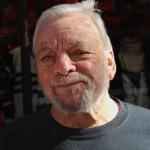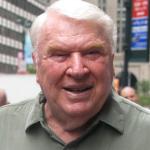Archbishop Desmond Tutu, the Nobel Peace Prize-winning Anglican cleric whose conscientious work for human rights made him a revered leader during the fight to end apartheid in South Africa, died on Sunday at 90-years-old. Desmond Mpilo Tutu was born on October 7, 1931, in Klerksdorp, South Africa.
His father was a teacher, and his mother was a domestic worker. As a child, Tutu wanted to become a doctor due to his battle with tuberculosis. He even qualified for medical school. Sadly, his parents couldn’t send him to medical school, so Tutu became a teacher instead, a decision that Tutu didn’t regret.
Tutu was shocked at the state of Black South African schools and more shocked when the Bantu Education Act of 1953 racially segregated the nation’s school system. Tutu would eventually resign in protest of the new legislation. Not soon after, in 1960, the Bishop of Johannesburg agreed to accept him for the priesthood.
Tutu thought it was because he was a Black man with a university education, an oddity in the 1950s, and took up his new profession. After he was ordained, Tutu spent most of his time traveling between London and South Africa. While in London, he watched as his home country endured turmoil and decided to return to South Africa in 1975 after being appointed dean of St. Mary’s Cathedral in Johannesburg and immediately used his new position to make political statements.
As the South African government became more oppressive, detaining Black people and establishing arduous laws, Tutu became more outspoken. South Africa was turning into a pariah country. Demonstrators in the United States protested corporate investment, and Congress backed up the stance with the 1987 Rangel Amendment. The United Nations established a cultural boycott. Tutu won his Nobel Peace Prize in 1984; during his speech, he said that South Africa was endowed in many ways but lacked justice.
In 1988, two years after being named Archbishop of Cape Town, Tutu became the first Black man to head the Anglican Church in South Africa. In the same year, authorities arrested Tutu while taking an anti-apartheid petition to South Africa’s parliament. However, the tide was turning. The following year, Tutu led a 20,000-person march in Cape Town.
Also, in 1989, a new president, F.W. de Klerk, started easing apartheid laws. Finally, on February 11, 1990, Mandela was released from prison after 27 years. In 1994, Nelson Mandela was elected president of South Africa, and Tutu said that introducing Mandela as president was the most significant moment of his life, outside of the birth of his first child.
In 1995, Mandela appointed Tutu as the chair of the Truth and Reconciliation Commission to address the human rights violations of the apartheid years. Although he was a true statesman, Tutu would eventually return to teaching, becoming a visiting professor at Emory University in Atlanta and lecturing at the Episcopal Divinity School in Cambridge, Massachusetts. Tutu would retire from public service in 2010. Tutu was in bad health for many years; in 2013, he underwent tests for persistent infection and was in and out of the hospital in the following years.
Leaders from around the world sent their condolences to the Tutu family. Former U.S. President Barack Obama, who gave Tutu a Presidential Medal of Freedom in 2009, called Tutu a friend, mentor, and moral compass. The Nelson Mandela Foundation called Tutu’s death an immeasurable loss.
South African President Cyril Ramaphosa called Tutu a patriot without equal. People will remember Archbishop Desmond Tutu for his work for human rights, but they will also remember him for his good humor and infectious laugh. Archbishop Tutu is survived by his wife of more than 60 years, Nomalizo Leah Tutu, and his four children.


